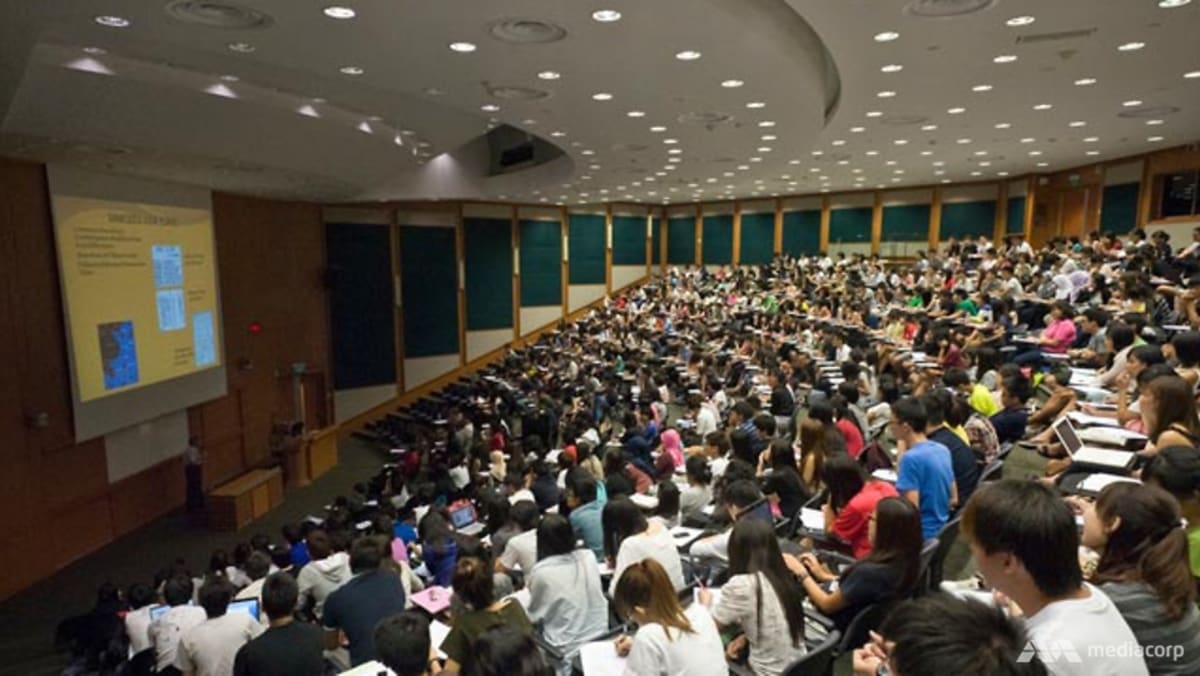SINGAPORE MOST POPULAR CHOICE AFTER UK
A report by China’s Ministry of Education and Beijing-based think tank Centre for China and Globalisation ranks Singapore as the second-most popular destination for Chinese students, after the United Kingdom.
Singapore universities are responding to this trend by introducing more Mandarin-taught postgraduate programmes.
NTU, the Singapore Management University (SMU), the Singapore University of Technology and Design (SUTD) and the Singapore University of Social Sciences (SUSS) are among those launching new courses.
NTU’s Nanyang Business School will introduce a new Executive Master of Business Administration in Mandarin this October, said Professor Boh Wai Fong, NTU’s vice-president for lifelong learning and alumni engagement.
About 50 students graduate from the joint MBA programme between NTU and Shanghai Jiao Tong University each year, he said. Enrolment in the university’s three other existing Mandarin-medium programmes has remained steady, with about 240 students in total admitted annually.
One of these is the Master of Science in Technopreneurship and Innovation, which sees about 50 students on average per academic year.
SUSS launched its first Mandarin-medium postgraduate course in 2024, which received strong interest, a spokesperson said. This prompted the university to roll out more Mandarin programmes in areas such as fintech, data analytics and intellectual property. These new programmes will begin this July.
Applications by international students rose by 30 per cent between the 2024 and 2025 academic years, with a significant increase from China and ASEAN countries, the spokesperson said.
SUTD’s first Mandarin-taught Master’s in Technology and Design programme will start in September this year, with about 60 students enrolled so far, including students from China, said the university’s chief of staff for student experience and transformation Jonathan Kua.
SMU’s business school is set to launch a Chinese Executive MBA in January 2026.
“While it is still early in the admissions cycle and we cannot confirm the final student profile, we have seen strong interest from Chinese-speaking applicants, including those from China,” an SMU spokesperson said.
RANKING, NETWORKING AND COST KEY FACTORS
Chinese students who spoke to CNA said the growing appeal of Singapore universities lies in their strong showing in global rankings. In the latest QS World University Rankings published in June, NUS ranked eighth globally and top in Asia, while NTU climbed three places to 12th.
“For Chinese students, what they value most is the QS rank of the school,” said Ms Wang Xuan, a former NTU master’s student. “Singapore actually has two schools in the top few. So it’s really a good option for the students.”
The 27-year-old was deciding between Singapore and Hong Kong, and eventually decided on the former because she thought it would expose her to more cultures.
“If you look at the top few (universities), basically all those in the US and UK, the language issue is a major problem,” said Ms Wang.
Singapore universities are easier for Chinese students as they do not have to take TOEFL or IELTS exams, she added, referring to the English proficiency exams required by some universities.
Mandarin-taught MBA courses are particularly attractive to Chinese nationals seeking to expand their business networks in Southeast Asia, she added. Some students also see these programmes as a way to integrate into the local community.
